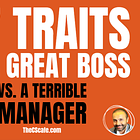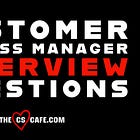The number of SaaS startups entering the market has exploded over the past few years.
The temptation of making your next career move to join a smaller organization has never been that high.
And yet, you dread the change.
You fear the unknown. You think you’ll have to work longer hours and get under the spotlights every day.
And… you’re right.
But although the work rhythm is different, a startup job comes with massive upsides.
So, here are the 7 reasons why you should challenge yourself, make the jump, and join a startup:
1. All Eyes On You
A startup by definition is a small group of highly talented people willing to win fast.
Everyone knows each other and what you do.
The news travels fast and there is no room for mediocre work.
You can brainstorm and bring an idea to life in a few hours. And you get feedback on your work immediately.
So, if you want massive visibility on your work in a very short amount of time, working for a startup is a no-brainer.
2. Direct Access To Execs
In a startup, you have a direct communication line to the C-suite.
There is no poor middle management that would kill your energy and motivation.
When you need the leadership team’s help on a deal or with a customer conversation, you go and bring them to the table.
While this is a massive benefit, it also comes with a warning:
your work must add value to their vision of the business.
Otherwise, you could find yourself disconnected and lose confidence.
So, if you are drowning under heavy processes with no access to your executives, the startup job is for you.
3. Autonomy is Power
In a startup, everything is a challenge.
Some part is even unknown and you have to figure it out yourself.
You must be autonomous enough to take initiative on your own to do the work and go beyond.
There is no room for those who love saying “This is not my job”:
You can not do the bare least and stay, either.
You are in the driver’s seat. You either own it or lose it.
So, if you like delivering results and making an immediate impact, join a startup.
4. Salary Cut But Massive Win
While salary is important, most people crave recognition and purpose first.
In a corporate job, you’re likely to have a steady comfortable paycheck and some great perks.
But this is where most people get stuck in their careers.
They start “climbing the wrong hill” as would say, Chris Dixon.
A hill that you thought was the highest. But the fog was covering the top.
As you arrive at the peak and start seeing clearer, you realize there are other hills much higher than this one.
So, no matter what the next steps are in your current job, consider stepping down. Take your chance on the other higher hill better aligned with your skills.
If your top priority is a steady income, a corporate job would be a better fit.
But if your ambitions are to climb higher with the potential of a massive win in all fields, join a startup.
5. Build Your Brand
Working for large corporations means everyone around you knows your company.
People know your brand. And it sends a strong signal to your network about your value to the market.
Whereas with a startup, most people are not aware of where you work.
So, if social awareness and recognition are important to you, prefer a corporate job.
But if you have a founder mindset to help the company build its brand from scratch, join a startup.
6. Wear Many Hats
You work in Customer Success and you have many talents.
You enjoy reaching out to other internal departments to align.
And it’s the reason why the startup world is the perfect opportunity for you.
You are not limited to a single job. You can practice other skills and wear different hats.
That way, you learn and grow faster in your current role.
So, if you are a generalist with the ambition to make a difference in many areas, the startup job is for you.
7. Career Growth
A startup job will offer you massive professional growth opportunities.
But you need to be ambitious and self-confident to succeed.
If you like the idea that the company must give you a job to execute, the corporate world is great.
But if you enjoy outgrowing your role fast, the startup job is for you.
And remember:
Difficult roads often lead to the most beautiful destinations 🎯
Addressing Common Concerns
The benefits of joining a startup are clear.
But it's important to address some common concerns:
Job Security: Startups indeed face higher attrition rates, around 25% compared to the U.S. national average of 13%.
But, this also presents opportunities for growth and advancement for those who stay. For more insights, check out Customer Success Tough Realities.
Work-Life Balance: Startups often require longer hours. And many are embracing the flexible work options they present.
Studies show that flexible schedules can lead to a 78% improvement in work-life balance and 45% greater job satisfaction.
Learn more about balancing work and personal life in 12 Reasons to Embrace Remote Work.
Burnout: This is a real and serious concern.
87% of startup employees reported that working at a startup negatively impacted their mental health at some point.
For tips on managing stress, read Burnout and Tough Customers: Tips.
Productivity: Yet 1.6% of workers think they work better in an office setting. The hybrid model for autonomy and flexibility can also increase work productivity.
For productivity hacks, see Boost Your Productivity with Rize.
Employee Satisfaction: Despite the challenges, over 60% of employees report being happy at startups, surpassing satisfaction levels at larger companies.
Explore more on this in Employee Happiness in Customer Success.
And That’s It
It’s not about working in the startup vs. the corporate world.
Both have their ups and downs.
And both are fine as long as you make your choice deliberately.
Here, it’s all about you and what you want to become.
What would you like to do next?
How do you see yourself in a year, 3, or 5 years?
Decide on what YOU want and find the right path for you.
As Jim Rohn would say in this epic speech:
The only question you should ask on a job is not “what am I getting here?”, but “what am I becoming here?”.
And don’t compare yourself to others.
The only person you should compare yourself to is you, from six months ago.
See how far you’ve come, celebrate, decide where you want to be next, and take action!
One day, or day one. The choice is yours!
-Hakan.
CS MY WAY - How The Best Leaders Run CS
Learn from the best, not in theory:
P.S. Want to share your own story? Fill out this quick form and I’ll get back to you over email.











